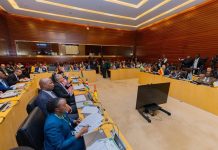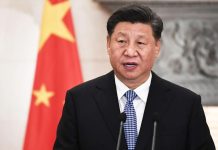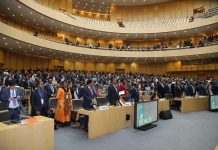Africa-Press – Lesotho. Intellectual property summer school has been hailed as invaluable initiative intended to increase general understanding of intellectual property principles, systems and tools in communities.
The Registrar General of Companies and Intellectual Property Authority (CIPA), Mr Conductor Masena said when officially opening the 2023 Intellectual property summer school session in Ghanzi recently.
Mr Masena said the objective or goal behind the initiative was to increase protection and commercialisation of traditional knowledge. Such initiatives, he said also aimed to protect the communities’ unique practices and indigenous art and music against misappropriation thereby enabling them to control and benefit collectively.
“The importance and role of intellectual property in our everyday lives was and is still evident with the advent of COVID-19 pandemic, where we witnessed the ‘star wars’ of intellectual property rights.
“The intellectual property rights debates that ensued over the production of COVID-19 vaccines, only taught us to value intellect, which yields results. It also taught us that developed countries have turned knowledge into valuable commodity,” he said.
He said it was against that backdrop that the Department of Research Science and Technology in collaboration with other key stakeholders including CIPA, Botswana Digital and Innovation Hub, University of Botswana, Copyright Society of Botswana and Botswana Institute for Technology Research and Innovation (BITRI) over the years conducted the Intellectual Property Summer schools in Gaborone, Kasane/Maun and now Ghanzi.
He said Ghanzi was unique, adding that it had indigenous plants and foods that had become delicacies in well-known and popular hotels across the world.
Mr Masena said over the years, Ghanzi had become synonymous with good cattle breeds, lately the district was making inroads into vegetable production and intellectual property was critical for value addition to all those products.
He said it was for this reason that Ghanzi was targeted for the Intellectual Property Summer School 2023. In the past we celebrated the World Intellectual in Dkar due to the innovative and creative activities found in the area including the Kuru Arts.
‘’It is in this Ghanzi District that when the British Airways was looking for art design for their aircrafts tail in 1997, they settled for the artwork of Cgose Ntcoxo, a member of us in Botswana, woman from within us.
This exchange of intellectual property with British Airways taught us many things as a nation. It taught and made us realise that knowledge is power regardless of where and who you are and knowledge in this era is the most sought-after commodity.
It also taught us that knowledge must be guarded and used for commercial purposes,’’ he said. He said the session theme, Tshomarelo le tshireletso ya dikitso tsa setso sought to address the immense wealth of indigenous/traditional knowledge across the country that remained unexploited.
He noted that some of the indigenous knowledge and ways of life were shrouded in secrecy. The World Intellectual Property Organisation (WIPO), which Botswana is a member, asserts that the recognition and protection of traditional forms of creativity and innovation as intellectual property is a worthy endeavour.
The WIPO Assemblies in 2022 finally reached a decision to convene a Diplomatic Conference in 2024 to conclude an international legal instrument relating to Intellectual Property, Genetic Resources and Traditional Knowledge Associated with Genetic resources.
Mr Masena said that was a great milestone that reinforced the value of traditional knowledge hence there was need to remain optimistic for global legislative interventions enabling local communities as well as governments to have a say over the use of their traditional knowledge by others.
However, he regretted that though Botswana had a law that protects traditional knowledge under the Industrial Property Act of 2010, only twenty five (25) had registered traditional knowledge products.
Representing African Regional Intellectual Property Organization (ARIPO), Dr Outule Rapuleng said ARIPO enforced and provided for registration and administration of intellectual property rights, even protection of traditional knowledge in the contracting states.
He said knowledge systems both formal and informal were recognised as they all contribute positively to the national economy. In his remarks on behalf of BITRI chief executive officer, Dr Kabo Mosetlha said indigenous knowledge should be supported and turned into to a modern science. He said Intellectual property was the currency of today and the future and needed to be protected and preserved.
For More News And Analysis About Lesotho Follow Africa-Press






